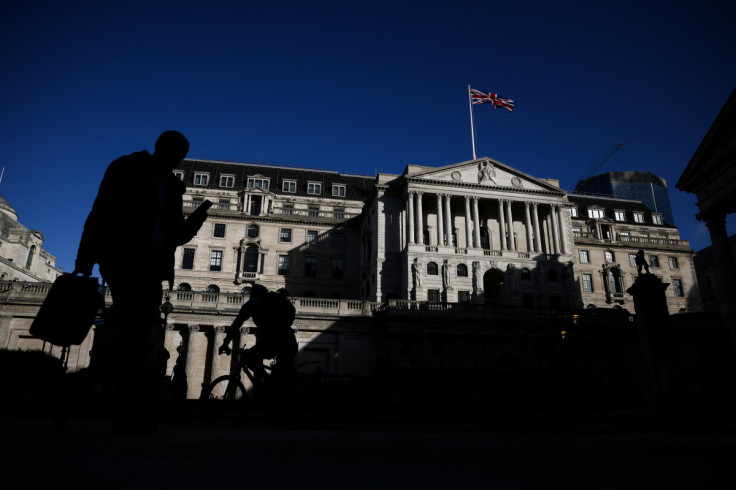Bank of England Faces Pressure to Adjust Interest Rates as Inflation Forecasts Take a Surprise Turn
Three prominent forecasters – Oxford Economics, Investec, and Deutsche Bank – have issued updates indicating a potential halving of the inflation rate to two per cent by April, forcing the Bank of England (BoE) to reconsider its timeline for the first interest rate cut.

The Bank of England (BoE) is facing potential pressure to advance the timeline for its first interest rate cut, following unexpected updates from three prominent forecasters. Oxford Economics consultancy, along with analysts at Investec and Deutsche Bank, have revised their inflation outlook for 2024.
Their surprise conclusion suggests that the consumer prices index (CPI), which dropped to 3.9 per cent in November last year, could plummet to two per cent by April. This sharp decline is attributed to a slump in energy prices and the cost of oil on international wholesale markets.
The independent forecasters anticipate that the Bank of England's own review next month will align with their projections, setting the stage for a potential shift in monetary policy.
The three independent forecasters reevaluated their inflation forecasts for 2024, contending that the CPI, which stood at 3.9 per cent in November 2023, is poised to fall below 2 per cent within the next four months. Their analysis points to a faster-than-expected reduction in inflation, driven by a decline in energy prices and the cost of oil on international markets.
This unexpected development has prompted a reassessment of the Bank of England's position on interest rates, raising the possibility of an earlier-than-anticipated rate cut.
The BoE's interest rate setting committee, in pre-Christmas speeches, had signalled that lending rates would remain high throughout 2024 to mitigate the risk of a resurgence in inflation. Governor Andrew Bailey had cautioned against speculations in financial markets that hinted at a reduction in official borrowing costs from the current level of 5.25 per cent.
However, financial markets have shifted their expectations, bringing forward predictions of the first interest rate cut to April. There is now an increased likelihood of multiple cuts throughout the year, potentially pushing interest rates below four per cent for the first time since January 2023.
Speaking at a Treasury committee hearing, Governor Bailey acknowledged the recent decrease in mortgage costs and expressed hope that the trend would continue. While he refrained from commenting on the future of monetary policy, Bailey recognised the impact of changing market interest rates on mortgage costs.
The reduction in mortgage rates, influenced by market dynamics, has been a significant development in response to the evolving inflation scenario.
The optimism surrounding the anticipated fall in inflation has led to a decline in mortgage rates, particularly for fixed-rate mortgages over five years. Investors appear to be downplaying concerns about factors that could potentially drive inflation higher, such as issues related to the Suez Canal and increased shipping costs due to geopolitical events in the Middle East.
The reduction in energy and fuel prices on international markets has contributed to a decrease in the cost of heating and transportation. Additionally, the anticipated decline in food prices, influenced by lower transport costs, is expected to further contribute to the overall reduction in inflation.
Andrew Goodwin, chief UK economist at Oxford Economics, has revised his inflation forecast for 2024, expecting the CPI to average 2.1 per cent, down from the November projection of 3.1 per cent. Goodwin confidently stated that inflation is on track to return to the two per cent target by April.
Phil Shaw, senior UK economist at Investec, emphasised that the impact of tax cuts announced in the autumn statement was less than expected. Shaw anticipates inflation to fall to 1.5 per cent in the third quarter, with the first-rate cut likely to be implemented in June.
Economists at Deutsche Bank foresee UK inflation dropping "a little below two per cent in April and May", with a subsequent stabilisation of around two per cent to 2.5 per cent for the remainder of the year. Sanjay Raja, the chief UK economist at Deutsche Bank, highlighted potential risks to this forecast.
He pointed out that robust wage increases could exert pressure on firms to raise prices, while additional tax cuts might boost consumer spending, enabling businesses to charge more for goods and services.
Raja also acknowledged the recent disruptions in global supply chains, suggesting that these disruptions could alter the current downward momentum in goods and food prices.
© Copyright IBTimes 2024. All rights reserved.






